That’s Doctor Cabbie
Harry Schroeder – “Doctor Cabbie”
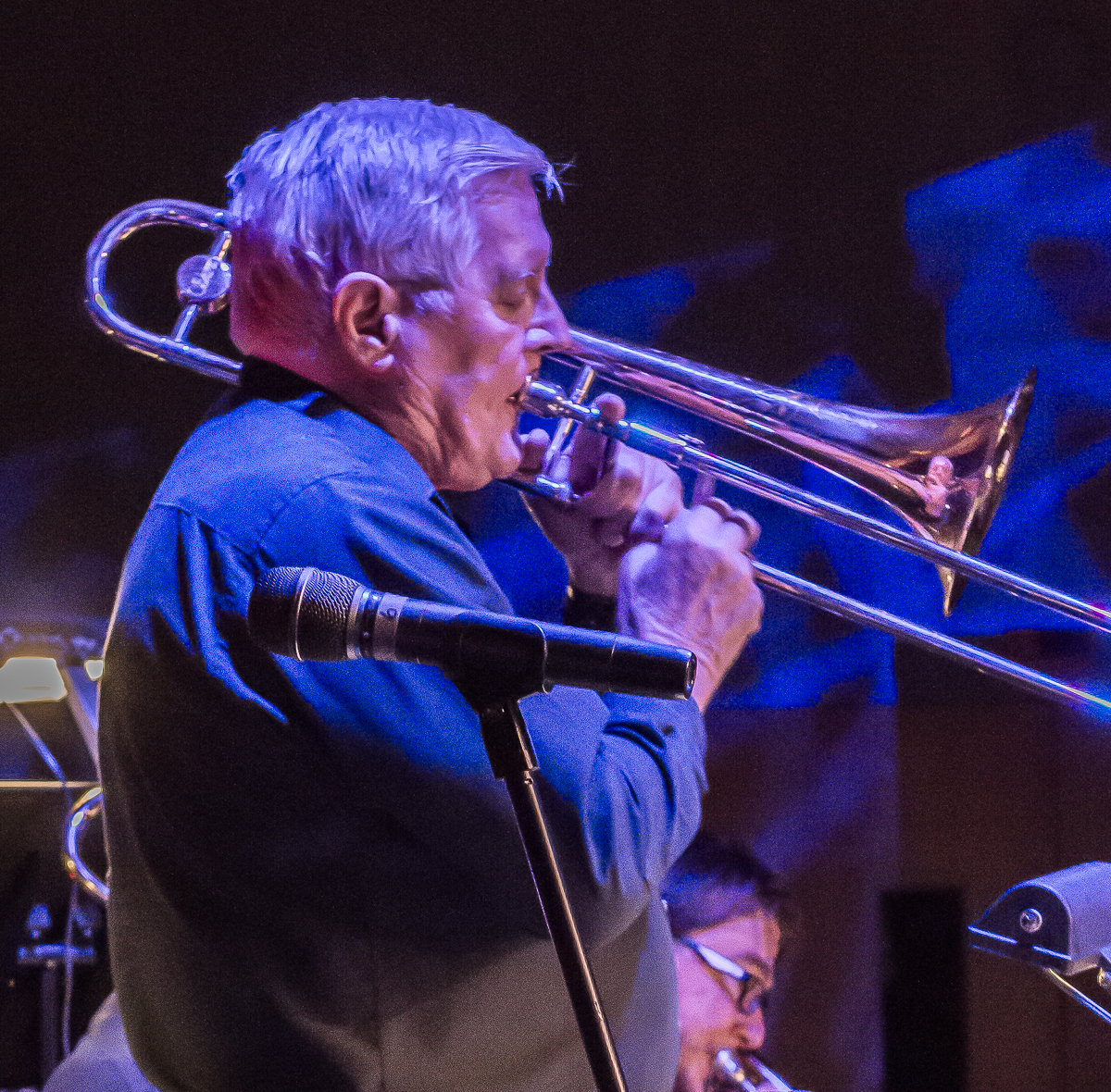
Harry Schroeder was born in New York City. At the age 7, he took piano lessons and did his best to ignore them. Schroeder heard Louis Armstrong for the first time when he was fourteen years old. He discovered music again. He started playing trumpet in the high school band but there was another trumpet player in the band that was much more advanced so Harry changed to the trombone.
Schroeder entered Yale in 1951 and quit in February 1953, having spent most of the year and a half playing bad Dixieland instead of going to class. Afterwards, he joined the Marine Corps, which included a tour in Korea post-war. He returned to Yale, graduating in 1959. He won a Woodrow Wilson Fellowship and attended Harvard obtaining a Master degree. Schroeder returned to Yale, received his doctorate and, in 1963, began a five-year stint on the Yale faculty teaching English Literature, specializing in Chaucer.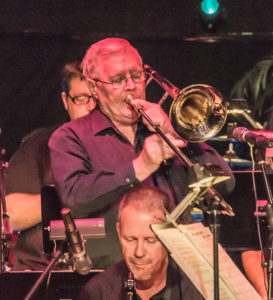
In 1979, he came down to the Keys to dive the reefs, and like many, fell in love and stayed. To make ends meet, Schroeder drove a cab until 1997. His first music gig was with the Key West Funeral Band. Harry played with the fourteen piece Cajunto Caribe Band in the 80s. Later, along with Harry Chipchase and Edwar Weech, he was part of a quintet playing at Two Friends. In 1991, Harry began teaching English classes for St. Leo College in Key West and continued until retirement.
In 1997, renowned music educator Emily Lowe needed a chamber orchestra for the Keys Chorale. Harry assembled a group of musicians which included Jerry Seeco, from Berkley School of Music, who helped with initial arrangements. It was a big success. From this gig, Schroeder along with Tim McAlpine, Skipper Kripitz, and Joe Dallas formed a group called Paradise Swing Band which quickly morphed into Paradise Big Band.
Schroeder loved performing with musicians that he considered world class. One of his closest friends was the late Mike Gillis who everyone would consider a world class guitarist. Gillis’ resume had a three-page list of musicians and bands that he had performed with, including Count Basie All Stars 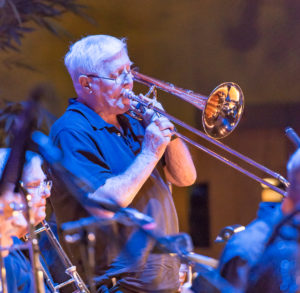 and Doc Severinsen (Tonight Show). Schroeder considered Mike Gillis ‘the best improvising musician ever’. Another friend from New York said that every time a new hot shot guitar player would come to town, someone would always ask, “Is he as good as Mike Gillis?”
and Doc Severinsen (Tonight Show). Schroeder considered Mike Gillis ‘the best improvising musician ever’. Another friend from New York said that every time a new hot shot guitar player would come to town, someone would always ask, “Is he as good as Mike Gillis?”
Harry also loved playing with drummer and friend, the late Richard Crooks, one of the greatest. With drummers, Harry likes to use the ‘signal to noise’ ratio, an engineering measure to evaluate performance. The more signal, the less noise. With drumming, the signal is the energy or power projected by the player. The noise is the sound coming out of the drum. The more energy you can project, with less sound coming out of the drum, the better the music.
One night at a student workshop, Richard sat in for a few minutes on the chorus of Duke Ellington’s “In My Solitude”. Harry had been having some serious personal problems and was in a funk and not playing very well for weeks. While playing lead trombone on a solo, with Richard on drums with only brushes and a snare drum, Harry sounded wonderful. He felt Richard’s brushes controlling him from behind as if there were strings attached to him. He was like a puppet on strings. Harry said “that’s what the great ones do.”
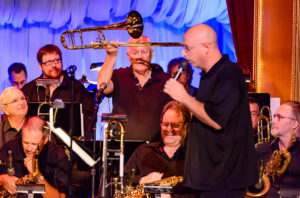 Schroeder, now in his 80s, is retired and his health does not allow him to play his magical trombone. Good friend Joe Dallas said “He was like a father to me. Harry (and I) started the Paradise Big Band and together, from day one, we created what it is today. At one point, he gave me the reigns and I’ll never forget that! He and I would dream things up and then actually do them! Harry is one of a kind!” Harry continues to write charts for the Paradise Big Band.
Schroeder, now in his 80s, is retired and his health does not allow him to play his magical trombone. Good friend Joe Dallas said “He was like a father to me. Harry (and I) started the Paradise Big Band and together, from day one, we created what it is today. At one point, he gave me the reigns and I’ll never forget that! He and I would dream things up and then actually do them! Harry is one of a kind!” Harry continues to write charts for the Paradise Big Band.
Another good friend former Berklee School of Music professor Tim Mayer, tells how Harry introduced him to Key West. Harry took me straight to Tavern ‘N Town, where Peter Diamond was singing with Dave Burns, Lonnie Jacobson, and Greg Sergo. I thought to myself, holy crap, if this is just another night here, how do I get in on this scene!? Thank you Harry.
A long time ago Harry wrote a story for Island Life magazine that summed up his Key West dichotomy in a sentence. He wrote about the town’s atmosphere while he was still driving a cab. “The only use I’ve had for an advanced degree in Key West was when somebody yelled at me, “Hey, Cabbie!” I got to answer, “No, sir. That’s Doctor Cabbie.” That graduate school work led to a teaching career at St. Leo’s College. It was a long journey from Yale, Harvard, and teaching Chaucer’s Canterbury Tales with some great music along the way.
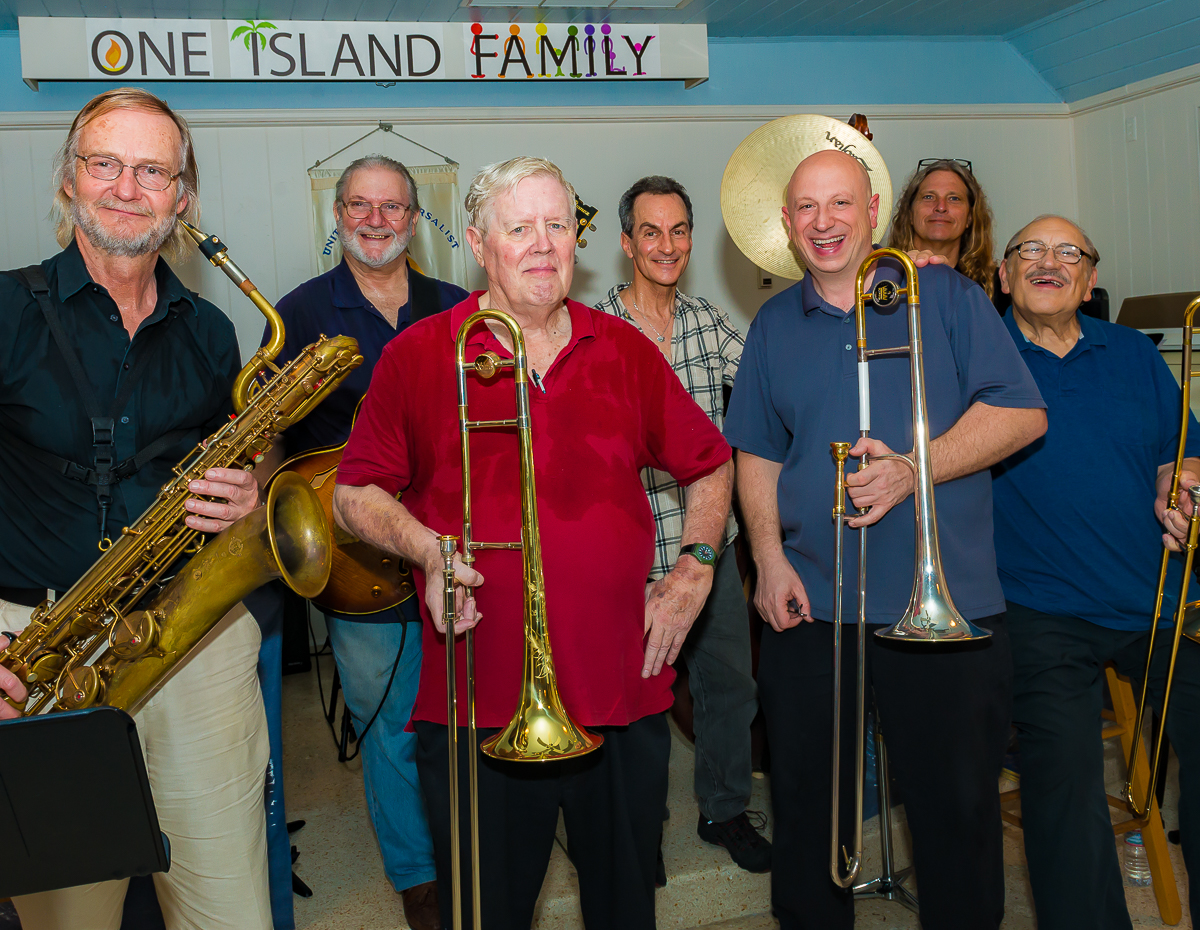
George Helmut, Mike Gillis (deceased), Harry Schroeder, Skipper Kripitz, Joe Dallas Jr., Bubba Lownotes, Joe Dallas Sr. (deceased) gather for their annual Ilse of Bones (trombones) concert in 2014.



Thanks Ralph DePalma for your article on Harry Schroeder: ‘Dr. Cabbie’. In recounting Harry’s background and life, your article also brings back to life memories of a varied cast of characters, both past and present, that formed our beloved Paradise Big Band.
Bravo to you — and to them.
Erika & Joel Biddle
I was privileged enough to learn how to better write while taking classes in Key West, Florida. He changed my life from the day I met him. Dr. Harry Schroeder encouraged me to let the writing breath as music does. Grammar doesn’t do anything but provide context and flavor. Man am I am lucky person to have met this wonderful soul.